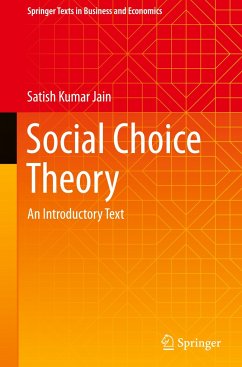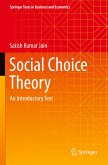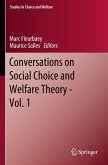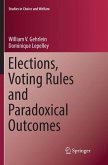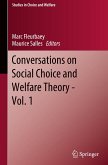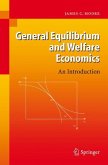This introductory textbook on social choice theory makes the social choice theoretic framework and its main results, that have a direct bearing on the discourses on electoral rules and policy evaluation, accessible to a larger audience. The text is essentially self-contained. No previous knowledge of mathematical logic or relational algebra is assumed. Whatever technical prerequisites are needed, are developed in the text itself. Although the text is at an introductory level, there has been no compromise on rigor. Unlike most introductory books, the relevant proofs are not omitted; rather, they have been explained in detail. The text has a large number of examples so that the concepts and results become clear to the reader. There is a large number of exercises with full solutions provided at the end of the text, so that the reader can check her/his understanding of the material.
Bitte wählen Sie Ihr Anliegen aus.
Rechnungen
Retourenschein anfordern
Bestellstatus
Storno

